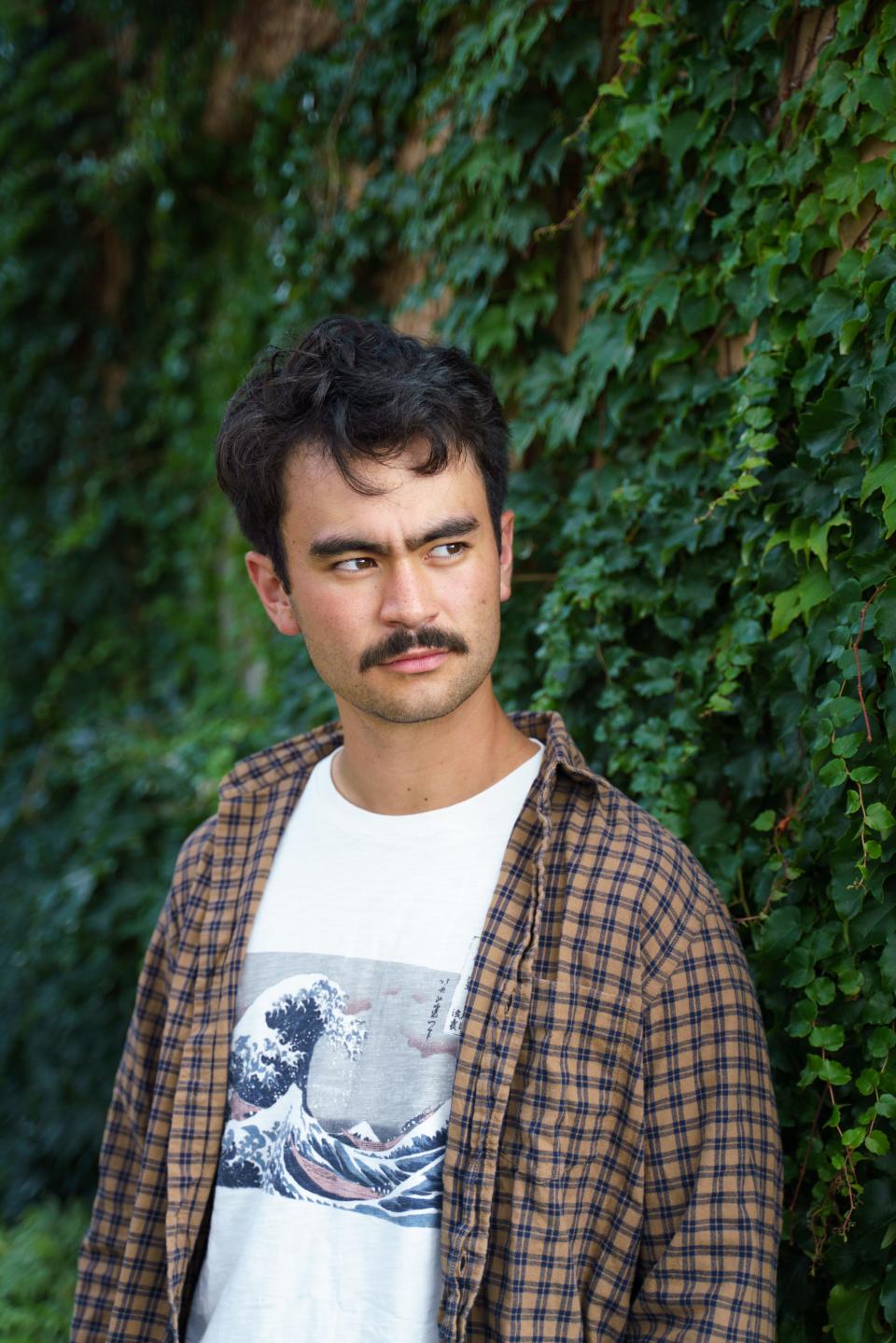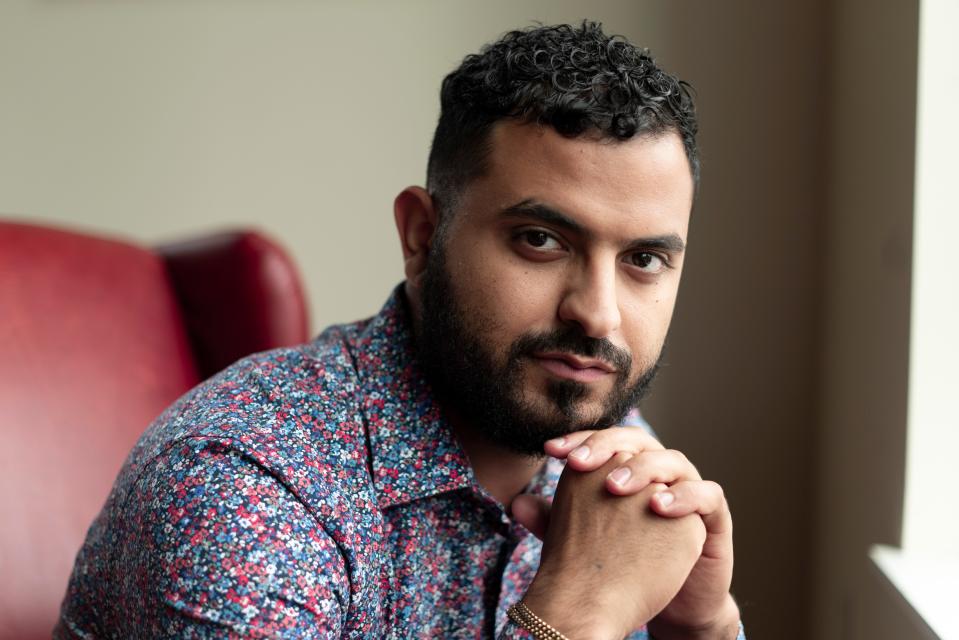This is America: They were babies on 9/11. It's changed their lives.
I was sitting in the USA TODAY headquarters in McLean, Virginia, when a report of a person with a weapon prompted heavily armed police officers to evacuate the building and direct us to shelter in the basement of a nearby hotel.
I called my parents once we got outside to let them know I was OK and heading home. "Do you have your wallet and keys?" my dad asked. "No," I said. "I didn't have time to grab them."
"Why don't you keep them on you at all times?" he asked. Ever since 9/11, he’s always kept them in his pocket, ready to go, just in case he has to run.
Sept. 11, 2001, was a formative memory for many millennials and life-changing for older generations, like Gen X, my parents among them.
But Gen Z has no collective memory of what happened that day 20 years ago. Many research institutions identify 1996 as the cutoff point between generations specifically because those born afterward have little to no memory of the attacks. To many, 9/11 is history.
I'm Grace Hauck, a breaking news reporter based in Chicago.
Over the past few weeks, I spoke with dozens of Gen Zers across the country about how they’ve come to understand what happened that day. In the process of listening to their stories, I’ve been forced to reflect on just how much 9/11 has shaped my own life.
But first, race and justice news we are reading:
'Hey, Black people exist here': Black population makes significant gains in US West
Shang-Chi's Simu Liu 'would've given anything' to change his name to Steve. Asian Americans relate.
As clean energy jobs grow, women and Black workers are at risk of being left behind
For many in Gen Z, 9/11 is history that has shaped the present
Many of the Gen Zers said they first learned about 9/11 in school on the anniversary of the attacks and spoke about it as an abstract, New York-centric event. They spoke of the planes hitting the towers, the first responders, the victims.
Katie Brockhage, 24, said the first conversation she remembers having about 9/11 was in first or second grade. "The teachers just told us that there'd been an attack and that it was these bad people over in some country I'd never heard of," said Brockhage, a defense contractor for the U.S. Air Force in Colorado Springs.
Others talked about learning about 9/11 through family stories, social media, Hollywood movies, anniversary news coverage, museums, books and other pop culture.
Ben Chang, 21, was 15 months old in the day care at 5 World Trade Center when the first plane hit the twin towers. He said it wasn’t until 2018, when he saw the movie "Vice," a black comedy about former Vice President Dick Cheney, that he came to understand 9/11’s place in a larger historical context.
Some, like Ronnie Monroe, 19, who grew up on the Wind River Indian Reservation in Wyoming, said 9/11 hasn’t been a big topic of conversation in his life. While it affected him as a U.S. citizen, it hasn’t affected him personally.

Still, a majority of people who don’t remember 9/11 say it permanently changed the way Americans live, according to a recent USA TODAY/Suffolk University Poll. Among respondents who said they don't have memories of 9/11, 64% said 9/11 had a big impact on their generation, compared to 85% among all respondents.
Many identified other crises as paramount. Respondents who said they didn't have memories of 9/11 said COVID-19, mass shootings and climate change have been the biggest challenges for the U.S. over the last 20 years.
"Gen Z would rather leave stuff like that in the past and focus on today’s problems," Monroe said.
'We still live it'
Many Muslim and Arab Gen Zers said 9/11 has cast a long shadow over their communities. They spoke of family and friends moving to new neighborhoods and changing names. Several said they have grown accustomed to being pulled aside by airport security. Some spoke of being called slurs.
While many Muslim and Arab Gen Zers said they’ve never known a pre-9/11 world, they see a distinct difference in the way the attacks affected their parents’ and older siblings’ lives, compared to their own. They spoke of coming of age with a more tolerant generation — one with a critical view of U.S. post-9/11 domestic and foreign policy.

"I think we look into things a little differently than before," said Ayoub Affaneh, 24. "We like to kind of go deeper and say, ‘OK, why is this happening there?’ I think it's different than the millennials or the boomers."
Many Gen Zers said they’ve been following coverage of the U.S. withdrawal from Afghanistan. Scenes from Kabul airport and the suicide bombing have been seared in their minds. Nearly all of the 13 U.S. service members killed in the attack were Gen Z. Five were babies on 9/11. Several Gen Zers who served in Iraq and Afghanistan declined to speak with me.
Zainora Babayee, 23, remembers hearing the phrase "9/11" on the news in her family’s home growing up in Kabul, where her father worked as a private contractor with U.S. special forces. Only years later, after her family moved to the U.S., did she learn about what happened on 9/11. Now, she’s struggling with survivor’s guilt as she watches her many friends and cousins fall under Taliban rule.
"When I wake up I want to scream and let the world know what's happening," she told me Sunday, crying in her dorm room at the University of Virginia. "I see my peers around me enjoying their life, but I'm on my phone checking who got killed."
A small subset of Gen Z said they’ve lived 9/11 every day for the past 20 years. People who lost parents that day say the attacks are still incomprehensible. Several said their childhood was characterized by caring for relatives sickened by toxins and veterans struggling with their health, and spending holidays without friends and family who were serving overseas.
Caitlin Spor, 20, was 9 months old when her father, Joseph P. Spor Jr., a second-generation fireman in the Bronx, responded to the World Trade Center. Her older brother, Joe, now works in Freedom Tower.
"I don't think kids know how hard it is, even though it's been almost two decades now," she told me. "We still live it."
Reflecting on the fleeting memories and lasting pain
Earlier this summer, I met a Chicago friend for coffee three blocks from ground zero before spending the day at the 9/11 Memorial & Museum there. As we parted ways, I told him where I was going.
"Oh," he said, "this is where 9/11 happened?"
Shocked, I nodded, and walked over to the familiar reflecting pools.
Like some of the Gen Zers more directly affected by the attacks, I grew up surrounded by the legacy of 9/11, in a New Jersey commuter town outside of New York City.
Thirteen people from my town lost their lives that day, and I grew up alongside their children. Their names, each on a plaque, encircle two steel beams in a memorial outside our public library. Each year on the anniversary, from the top of the hill near where I lived, I could see the two beams of light, just 20 miles away, shooting up into the sky – the ghosts of two towers.
Born in 1995, I’m a cusper. Like many millennials, I have memories of that day. But like many Gen Zers, I was too young to make sense of what was happening.
Sept. 11 was my first day of kindergarten. My dad dropped me off at school, went to a doctor’s appointment and got on the train to Manhattan. He used to walk through the World Trade Center to work each morning. That day, he was arriving late.
My cousin, sitting at his desk in middle school in Washington, D.C., recalls the rumble of the plane flying overhead toward the Pentagon. My uncle, standing on the top floor of the Navy annex blocks away, remembers the ceiling tiles being sucked upward from the pressure of the passing plane, then the evacuation to Arlington Cemetery.
My uncle would lose a close colleague that day. Years later, my cousin would serve in Afghanistan and lose friends there. My aunt would report on the wars in Iraq and Afghanistan and watch as kids bled out in medevac helicopters.
They're all devastated to see where Afghanistan has ended up, 20 years later. As I sit at home in New Jersey, I hear the devastation in Babayee’s voice, too.
"I’ve never experienced greater pain than this," she says.
Read more: USA TODAY's 9/11 coverage
Sept. 11 by the numbers: Facts from a tragic day in American history
‘Maybe we don’t have control over our destinies’: Touching stories from the class of 9/11
The photo of a grieving 9/11 son was unforgettable. 20 years on, he recalls his mom's sacrifice.
‘Breaking stereotypes': How 9/11 shaped a generation of Muslim Americans
Did 9/11 permanently change life in the US? More Americans think so more than ever before.
--
This is America is a weekly take on current events from a rotating panel of USA TODAY Network journalists with diverse backgrounds and viewpoints. If you're seeing this newsletter online or someone forwarded it to you, you can subscribe here. If you have feedback for us, we'd love for you to drop it here.
This article originally appeared on USA TODAY: Gen Zers learn about 9/11 as a part of history

